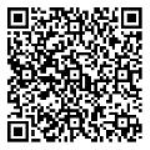期刊目錄列表 - 54卷(2009) - 【教育科學研究期刊】54(1) 三月刊
 Directory
Directory
潛在課程之研究:以一所公辦民營學校為例
作者:林素卿(國立彰化師範大學教育研究所)
卷期:54卷第1期
日期:2009年3月
頁碼:179-208
DOI:10.3966/2073753X2009035401007
摘要:
本研究旨在探討公辦民營學校之潛在課程。採用非參與觀察、訪談與文件分析法。研究結果如下:一、學習經驗之潛在課程:生活化教材可提升學習動機與興趣,養成學生自主負責的學習態度,並與同儕間培養出學習默契;多元質性評量能讓學生展現其優勢智能;二、師生互動關係之潛在課程:強調尊重、溝通、信任、關懷的師生互動模式,讓學生充分感受到被重視,並學會以同樣模式與老師互動;三、同儕互動關係之潛在課程:在家族同儕間,能彼此關懷與養成自我管理的能力,有助於拓展人際關係;四、學生對學校之認同:包括較多的生活化教材、戶外教學經驗、多元的質性評量。本研究最後根據研究結果提出建議,供教育相關單位及後續研究之參考。
更正專區:
本人於2009年刊登之文章:「林素卿(2009)。潛在課程之研究:以一所公辦民營學校為例,54(1),179-208。doi:10.3966/2073753X2009035401007」,係本人與郭純瑢合作之成果,因其放棄列名,故僅以單一作者發表,在此感謝郭君對本文之貢獻,特此誌謝。
國立彰化師範大學教育研究所 林素卿 教授 謹啟
2020年5月
關鍵詞:公辦民營學校、潛在課程
 《詳全文》
《詳全文》

Journal directory listing - Volume 54 (2009) - Journal of Research in Education Sciences【54(1)】March
 Directory
Directory
The Investigation of the Hidden Curriculum: Taking a Privately Managed Public School as an Example
Author: Su-Ching Lin(Graduate Institute of Education, National Changhua University of Education)
Vol.&No.:Vol. 54, No. 1
Date:March 2009
Pages:179-208
DOI:10.3966/2073753X2009035401007
Abstract:
The purpose of the present study was to explore the hidden curriculum in a private management of public school of Goodwill Elementary and Junior high School (anonymous name). A number of different sources were used to collect data: observation, interviews and document analysis. The results of this study include: first, life-relating materials promote students' learning motivation and acquire profound learning experiences. Students also built the independent and responsible learning attitude. Alternative qualitative assessments enable students to develop their multiple intelligences. Second, students-teachers relationships which are respectful, communicable, encouraged, concerned and trusted make students feel valued and learn self-esteem and how to respect others. Third, students establish the confraternity and consensus with peers, concern with each other and learn how to manage themselves in the family-like, cooperative learning environment. Fourth, students have strong belongs to school. The suggestions are also concluded.
Keywords:privately managed public school, hidden curriculum